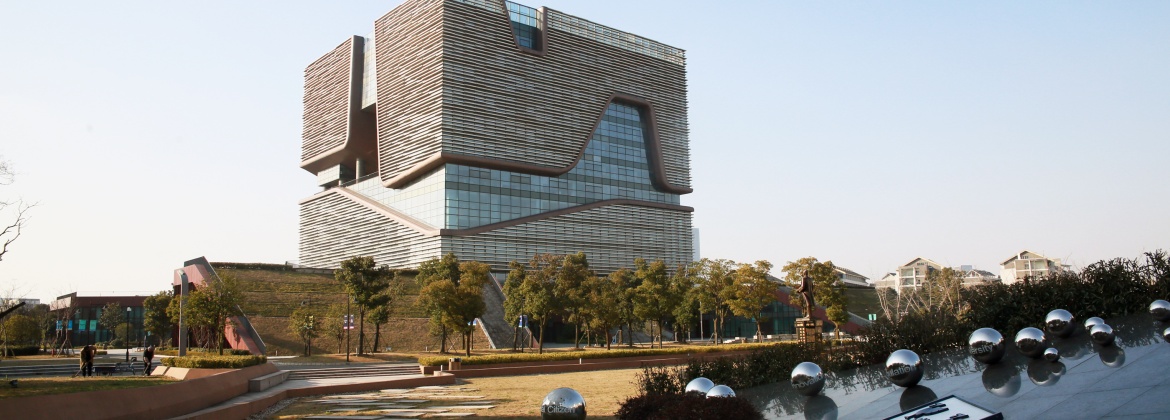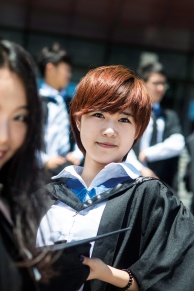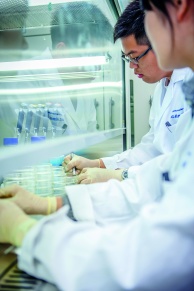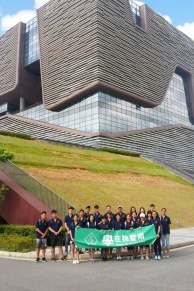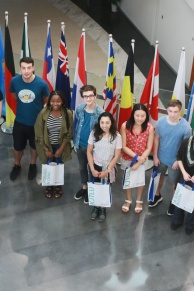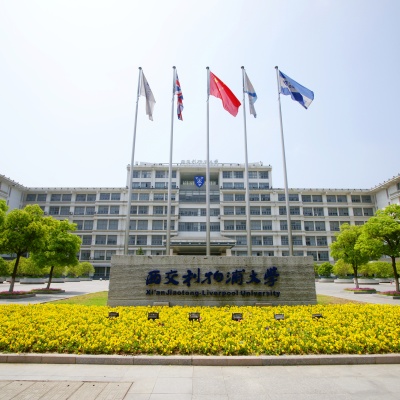I. STRATEGIC BLUEPRINT
XJTLU has been committed to be an explorer and leader for the future education since its creation, with its strategies always geared toward the needs of the future. With disruptive technologies and the pandemic changing paradigms and people’s lives, it is of critical importance that we rethink education, reshape learning & teaching and redefine the role of the University.
XJTLU has built up a systematic Five-star Education Blueprint for its future developments, based on previous years’ strategic explorations and success. This blueprint, built around the mission, vision and education philosophy of XJTLU, consists of three unique education models:
- The XJTLU 1.0 model has innovated and upgraded the traditional education of professional elites;
- The XJTLU 2.0 model explores Syntegrative Education for cultivating elites and leaders in new industries;
- The XJTLU 3.0 model focuses on creating an ecosystem of innovation that promotes the further integration of university, industry and society, and extends to explore the full-chain of the education sector (from pre-school, primary, secondary, to new professional education). In the age of digital intelligence XJTLU can thus better fulfil its mission of reshaping and influencing education and serving the society.
- With its official campus opening in September 2022, the XJTLU Entrepreneur College (Taicang) will enter a new phase of development. The strategic goals for AY2022/23 are as follows.
- To rapidly increase the number of enrolled students, together with high student satisfaction
- Promote the brand of the Syntegrative Education (Taicang) through the operation and expansion of the XJTLU Entrepreneur College (Taicang)
- Expand the opportunities that we offer by building a global network of partnerships alongside support for entrepreneurship
- Optimise the cooperation and collaboration mechanism to support multi-campuses operation
- Serve as a role model for future education exploration and build a modern and intelligent campus
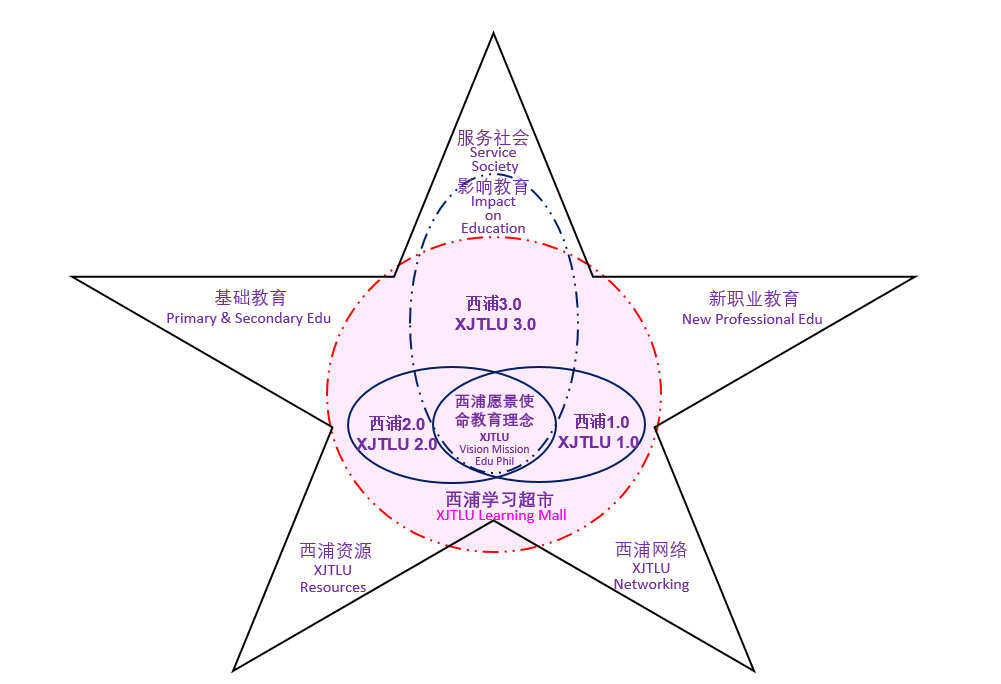
Explorations for each model of the Education Blueprint have been incorporated into the University Leadership Agenda in previous academic years. The University will take a more systematic approach and place the Education Blueprint at the core of Leadership Agenda for AY22/23 and onwards from there.
Specific goals to underpin the Education Blueprint are listed below.
II. STRATEGIC PRIORITIES
A. Education
The University will continue to upgrade and reform its educational system in AY2022/23. This will include exploring approaches to best support our students’ transformation and academic development together with introducing an Extended Study Scheme (credit-based education system) to facilitate personalised and interest-driven learning.
B. Research
The University will accelerate the pace of its ongoing build of an internationally-recognised reputation for research excellence by building on XJTLU’s existing track record of establishing robust international communities and collaborations, by generating researcher-friendly environments, by promoting interdisciplinary research and by drawing strength from the University’s research and other innovative platforms. We will endeavour to promote substantially global intellectual networking in all our main research and innovation areas, which will then concretely underpin the growth of our research impact, productivity and sustained contributions to the society through various initiatives.
We will further build the university-industry cooperative academies and a number of world-class Centres of Excellence in research by approaches including appointing an increased number of professors as leaders of research excellence, and exploring effective research incentives (nationally and internationally with partners), in order to achieve XJTLU’s aspiration to become a world-leading research-led university.
C. Service to Society & Regional Impact
The University has established itself as a key stakeholder and contributor to the region (Suzhou Industrial Park, Suzhou City, Yangtze River Delta and beyond), and will continue to strengthen its collaborations with all sectors of society to build new communities featuring sharing and symbiosis. Concrete links and enhanced social impact will be achieved by the development of new academies, university research and innovative platforms and the Think Tank.
Significantly, the University expects to form a new strategic partnership with the local government (for more details see Section III below, Cross-cutting Enablers).
D. Influence on the Education Sector
As stated in its mission, the University will continue to positively influence the higher education sector and drive the exploration for new educational models, with the support of the Ministry of Education. The work for AY2022/23 will focus on sharing the best practices of XJTLU, collaborating with other institutions and driving behavioural changes amongst all higher education participants.
In addition, XJTLU views education from a life-long perspective and so will seek to drive a full chain of educational exploration and innovation, in higher education, new professional education, secondary, primary, and preschool education, so that XJTLU can fully fulfil its commitment to be an explorer and leader for future education.
An opportunity now exists for XJTLU to use its SIP and TC campuses to explore the operational mechanisms and develop a better solution for universities to manage multiple campuses more efficiently, which is a critical challenge many Chinese universities are facing now.
III. CROSS-CUTTING ENABLERS
E. Internationalisation
We are proud at XJTLU of our university community’s multilingualism as well as our international diversity amongst students and staff. Indeed multilingualism and intercultural mobility are key graduate attributes for all XJTLUers. XJTLU will continue to strengthen the internationalisation of XJTLU’s operation and development in spite of numerous challenges ahead.
We will also systematically, creatively and pro-actively pursue the retention and (re)growth of international staff and student numbers as Higher Education begins to move beyond pandemic-restricted travel. We will explore the potential for developing new strategic markets and partnership networks, optimise our package for staff support and engagement, enhancing recruitment processes, review the scholarship system, explore the idea of a more flexible or mixed education system, and ensure the attractiveness of our programmes and international mobility to international students worldwide.
F. Student Recruitment & Support
The University will continuously commit itself to recruiting talented students who echo the University’s core values, and will provide its students with every opportunity to meet or go beyond their potential. The University will constantly optimise the learning environment and the support to students to facilitate their transformation from ordinary young people to strong global citizens. The work of AY2022/23 will focus on: strengthening domestic marketing and communications for student recruitment, enhancing academic, career and resources support for students including alumni, and promoting student transformation through the Learning Institute for Future Excellence (LIFE) in a systematic approach.
G. Organisation & People Development
The University will strive to serve as a role model for networking organisation in the university context and in the era of digital & AI transformation. The University will continue to optimise its organisational structure and governance to improve operational effectiveness and efficiency in AY2022/23 by sharing the experience of school operations as well as that of the four centres.
The University regards its staff, both faculty and professional services staff, as core assets of the University. We will endeavour to align the expansion of the organisation with a growing institutional reputation as an employer of choice based on significant and continual enhancement of the staff experience.
H. Campus Facility Development
The University will focus on upgrading the campus management concepts in AY2022/23, to make the campus a home to a safe, healthy, dynamic and environmentally-friendly academic community.
The University will actively collaborate with the local governments for support in campus facility development, to facilitate the success of focused initiatives including the opening of XJTLU Entrepreneur College (Taicang) and the university-industry-society ecosystem development (for more details see Section IV , Focused Initiatives).
I. Information Management
The University recognises information as one of its key assets, and will boost the information infrastructure and management platform development in AY2022/23.
IV. FOCUSED INITIATIVES
J. Acceleration of the Learning Mall Development
The Learning Mall was established in 2021 with the aim of providing learners with convenient world-class lifelong learning services, and the mission to innovate and inspire for tomorrow.
The University will accelerate the pace of building the future education-supportive XJTLU Learning Mall. The core objectives are to improve the effects of online-offline hybrid education, build individualised learner-constructed pathways with expert mentors, reinforce systematic quality assurance and management, form a global network of premier partners, expand the user capacity and enhance our reputation with stakeholders.
K. Successful Opening and Operation of the XJTLU Entrepreneur College (Taicang)
L. Establishment of a University-Industry-Society Ecosystem, facilitated by a Strategic Partnership to be Formed with the Local Government and an Expanded SIP Campus
The University will endeavour to establish a university-industry-society ecosystem, which is the core goal of XJTLU Version 3.0. We expect AY22/23 will see major progress for this undertaking, with the University forming a new strategic partnership with local government.
The significance and vitality of such an ecosystem has been proven by the great progress made so far by the XJTLU academies launched in AY21/22. This ecosystem will include XJTLU academies with academic areas closely linked with needs of the local region, a number of research and innovation centers and public service platforms meeting the critical needs of the local industries.
To lay a solid physical foundation for this ecosystem, we will also strive to build an expanded SIP campus featuring world-class facilities and an internationalised campus management philosophy.

